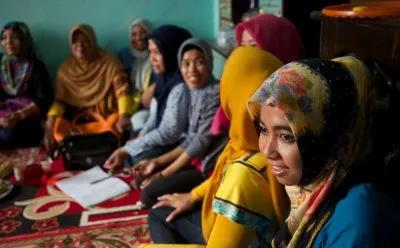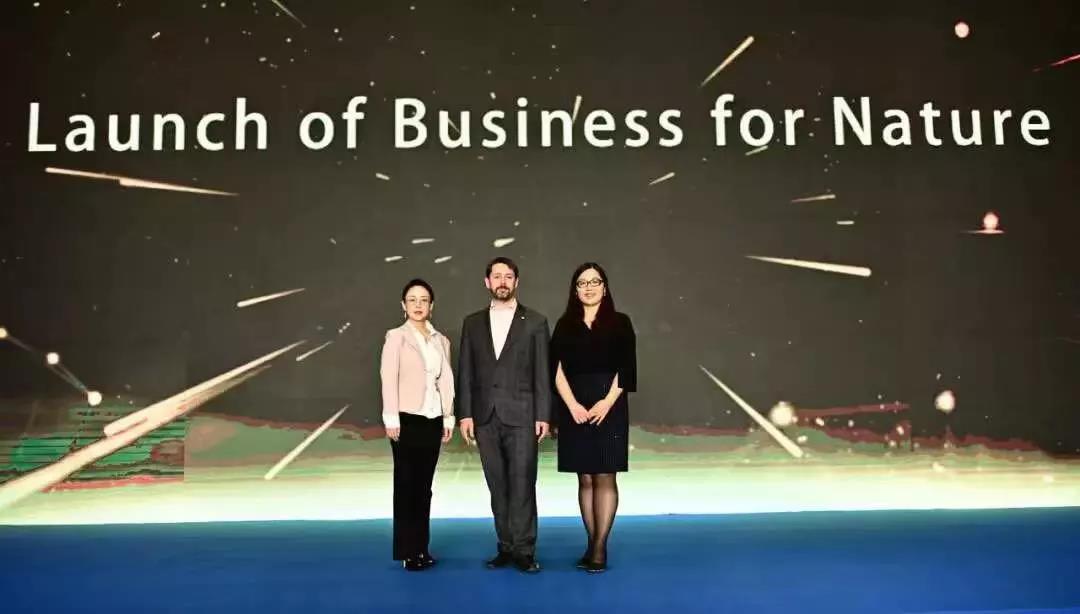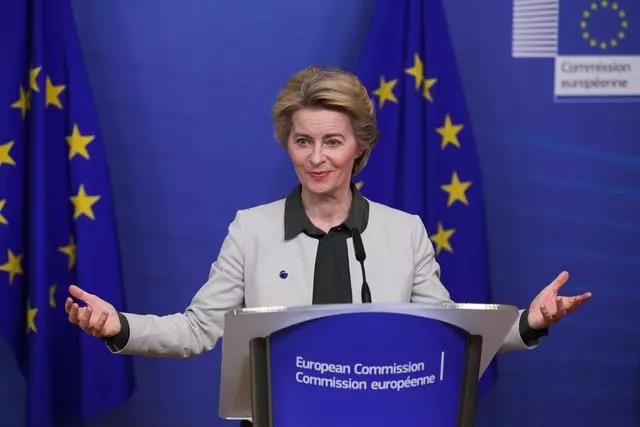2019 Top 10 International CSR Events
2020-01-19GoldenBeeGoldenBee0

In 2019, global development was always in a state of stalemate, with hope and disappointment alternating. And the progress of sustainable development, the greatest consensus of all mankind, made the world rejoicing and worrying; corporate social responsibility, as an action plan for enterprises to implement sustainable development, had breakthroughs and lingers.
Since 2006, we have been selecting and publishing the annual list of top 10 CSR events for 14 years. As the first step in 2020, China Sustainability Tribune (formerly known as China WTO Tribune) selected the 2019 Top 10 International CSR Events (in chronological order) to review and solute all efforts in social responsibility development in the world in 2019, and hopes to welcome a better 2020.
Since 2006, we have been selecting and publishing the annual list of top 10 CSR events for 14 years. As the first step in 2020, China Sustainability Tribune (formerly known as China WTO Tribune) selected the 2019 Top 10 International CSR Events (in chronological order) to review and solute all efforts in social responsibility development in the world in 2019, and hopes to welcome a better 2020.
1. ILO focuses on future work challenge in its 100th anniversary


On January 22, Global Commission on the Future of Work, formed by International Labour Organization (ILO), published the report Work For A Brighter Future. The report recommends governments to establish a national labor security so that full-time or temporary workers, platform-based workers and domestic workers can have the most basic labor rights. Centenary Declaration for the Future of Work was adopted on June 10, 2019 at the 108th session of the International Labour Conference. It proposes new solutions to the challenges of future work, redirects economic growth to people-oriented growth, formulates and implements people-oriented economic and social policies, promoting people-oriented business development.
Reason for listing:
Economic globalization, new technological revolution, climate change and population structure adjustment have profoundly changed labor relations. How to protect the rights and interests of non-standard employees represented by courier and take-out delivery man is a new challenge for platform economy, policies, and labor market. "People-oriented" growth is the restarting point for ILO to stand at the centennial point. It is an effort to achieve the Sustainable Development Goal 8 "decent work", and it should also be the foothold for governments and global companies to solve emerging labor market issues.
2. Germany plans to close all coal-fired power plants by 2038


On January 26, the German coal exit commission announced a consensus to phase out coal-fired power plants, with plans to end coal power by the end of 2038 at the latest. The commission recommended “a roadmap for coal exit”: by 2022, 12.5GW of coal-fired power plants will be shut down (1GW = 1000MW, 1MW = 1000KW), another 13GW will be closed by 2030, and coal-fired power will be completely phased out by 2038. At the same time, the government will give companies and consumers in the affected areas 2 billion euros in compensation each year. The total amount will reach 40 billion euros.
The commission also recommended that new coal-fired power plants would not be allowed. For coal-fired power plants that have been built but not yet in operation, operating permits will not be issued.
Reason for listing:
In terms of meeting emission reduction targets and replacing old energy sources with clean ones, Germany is a firm representative of "coal exit". In 2018, renewable energy including photovoltaics, wind power, hydropower and biomass energy have replaced coal power as Germany's main power source, accounting for 40% of total power supply, while coal accounted for 38%. The “roadmap for coal exit” is a signal of accelerated transformation released by Germany: the shift to clean energy is an irreversible trend and a market opportunity.
3. The EU and UN Women promote economic empowerment of women in Asia


On March 8, the European Union and UN Women jointly launched a three-year program WeEmpower Asia with a budget of 8 million euros. Funded by the EU and to be implemented by UN Women, the program aims to address gender concerns in business practices in the Asian countries. WeEmpower Asia will promote dialogue among women's groups and the public and private sector, in an effort to build a business environment that empowers women. The program will also provide skills training for female entrepreneurs to engage with businesses, policymakers and decision-makers.
Reason for listing:
Gender equality is one of the Sustainable Development Goals, and it is also an indispensable path to achieve other goals. Achieving gender equality is inseparable from the economic empowerment of women, which is a prerequisite for achieving inclusive and fair economic growth. With the power of business, the prosperity brought by a business environment that empowers women will not only benefit women's development, but will also benefit socio-economic development.
4. The EU unveils ethics guidelines for artificial intelligence


On April 8, the EU unveils ethics guidelines for artificial intelligence (AI), aiming at boosting trust in AI. The guidelines drafted by High Level Expert Group on AI, which was selected by the European Commission, listing seven key requirements for “trustworthy AI” to ensure AI is safe and reliable: “human initiative and supervision”, “robustness and security”, “privacy and data management”, “transparency”, “diversity, non-discrimination and fairness”, “social and environmental well-being” and “accountability”. At the same time, the European Commission will launch a pilot AI code of ethics, inviting industry, research institutions and government agencies to test and supplement the code.
Reason for listing:
The European Commission's guidelines are based on the idea that AI should both respect human rights and be strong enough to avoid unintentional harm. When more and more countries and regions recognize the importance of AI, responsibility and moral issues, the EU issued the guidelines, which is intended to regulate AI industry’s future development by integrating the industry's moral standards when promoting the development of AI industry. Although not legally binding, the guidelines are historically significant and are widely regarded as an important move to promote the establishment of a globally relevant standard.
5. 100 CEOs call on Europe to adopt a new sustainable development policy


On May 7, about 100 CEOs called on Europe to adopt a new policy at Brussels SDG Summit organized by CSR Europe, hoping to accelerate sustainable growth, address climate change and create inclusive prosperity, promote enterprises, industry, civil society and policy makers to establish a trust dialogue and create collaborative platforms and financial management models, aiming to achieve a circular economy and a digital economy, promote lifelong employability and social cohesion.
Reason for listing:
The consciousness of promoting sustainable business development has become increasingly strong in the minds of business managers. One hundred CEOs have called for a new policy to promote sustainable development, proving that companies internalize it from passive implementation to proactive actions. This will not only promote the improvement of policies, but also bring more companies into action to jointly build a trustful, transparent and sustainable business environment.
6. "Business for Nature" initiative pre-launched globally


On June 13, the "Business for Nature" initiative was launched at the 14th International CSR Forum. This event is the global pre-launching, with the purpose to introduce the “Business for Nature” initiative to Chinese enterprises, encourage them to voluntarily make commitments and join the Business for Nature Coalition, and build a platform of joint actions for global enterprises. In early 2019, the "Business for Nature" Coalition was established with the support of the Secretariat of the United Nations Convention on Biological Diversity. The founders include the World Business Council for Sustainable Development (WBCSD), We Mean Business Coalition, and the World Economic Forum.
Reason for listing:
Enterprises are an important force for the protection of ecosystems and biodiversity. However, there was no such a global and authoritative platform for enterprises’ participation. "Business for Nature" has emerged as the times require to provide support for those enterprises intending to protect the ecology in their business operation, and call on more enterprises to understand the importance of natural capital. Human beings should not give up the right to pursue a better life simply to protect themselves, nor can they sacrifice biodiversity for the well-being of contemporary people, but should coexist with nature in a more harmonious way.
7. New regulation on EU online platforms comes into effect


On July 31, Regulation on promoting fairness and transparency for business users of online intermediation services entered into force. It is stipulated to regulate the operation of online markets, online booking websites, "app store" and search engines and clarify the obligations of online platforms, in an effort to promote the fairness and transparency of interaction between online platforms and enterprises, and ensure that about 1 million EU enterprises better understand their rights on the ranking of search results, access permission, etc. and effectively solve mutual disputes according to the clear rules. Thereby it contributes to improving the principle of competition, so that consumers can benefit from better quality, lower price and more diversified choices of goods and services. The new regulation will apply to all EU Member States from July 12, 2020.
Reason for listing:
In recent years, Europe has become increasingly tough on tech giants on issues such as taxation, antitrust, privacy and data. With the vigorous development of e-commerce, disputes involving consumers, sellers and third-party platforms have become increasingly thorny. As a regulation addressing the challenges of business relationships in the online platform economy, the new regulation serves as an important milestone in the digital single market as it lays the foundation for future development. Not only will it increase the trust, predictability and legal certainty, but also provide new options available to mediate and resolve disputes between businesses and platforms.
8. India specifies the penalty of non-performance of duty


On July 31, the government of India passed the Companies (Amendment) Act,2019, which amended some provisions of the Companies Act, 2013. Among them, in terms of corporate social responsibility, the amendment specifies the penalty for failing to fulfill the obligations of corporate social responsibility: If the CSR funds are committed to certain ongoing projects, the company must transfer the amount to an unspent account with a scheduled bank within 30 days from the end of the financial year. In case of any violation of the CSR provisions, the company is liable to a minimum penalty fee of INR 50,000 (US$700), which may extend to INR 25 lakh (US$35,034). Further, every defaulting officer of the company may be liable to imprisonment for up to three years, or a fine up to INR 5 lakh (US $7,023), or both.
Reason for listing:
As a pioneer of corporate social responsibility legislation in developing countries, in 2013, Indian Company Act mandates companies to spend their profit on CSR activities. Since the implementation of this provision in 2014, it has shown a positive impact, but there are also flaws. The amended Act puts forward with more stringent requirements, which manifest that the legalization of global corporate social responsibility has been strengthened.
9. The CEOs of 181 U.S. top companies announce shareholder value is no longer their main objective


On August 19, the CEOs of 181 top American companies jointly signed the Statement on the Purpose of a Corporation at the Business Roundtable held in Washington. The Statement redefines the purpose of the company's operation, declaring that moving away from shareholder primacy, and a company's primary task is to create a better society.
Reason for listing:
Profit-seeking behavior seems to be an inherent characteristic of a company, and maximizing shareholders' interests has been regarded as a creed. Reversing these purposes and idea is undoubtedly a revolution in the business world. This will change the philosophy, behavior pattern and decision-making mechanism of businesses. This new revolution from the supply side will also profoundly affect the governance and consumption mode of the entire society and serve the sustainable future of the entire society.
10. Europe to become the world’s first climate-neutral continent by 2050

On December 11, the European Commission announced a new deal, the European Green Deal, in Brussels, to address the climate change. It says that Europe strives to become the world’s first climate- neutral continent by 2050, aiming to realize the sustainable economic development of the EU by turning climate and environmental challenges into opportunities in the policy field, and puts forward to maximize resource utilization by taking measures including turning to clean energy and circular economy, preventing climate change, restoring biodiversity and reducing pollution, etc. These measures cover almost all areas of the economy, especially transportation, energy, agriculture, construction, steel, cement, ICT, textile and chemical industries.
Reason for listing:
Europe has been ambitious in fighting climate change. In 2019, "climate emergency" was selected as the Oxford Word of the Year, and the UN Climate Change Conference held in Madrid once again called on all countries to make practical actions. This powerful new deal of the European Commission is a positive response to the current global climate issue, and it also projects Europe the image of "climate-neutral" global leader by regarding transformation as an opportunity.
----------------------------------------------------------------------------------------------------------------------------------------------------------------------------------------------------------------------------------------
Experts participating in the selection of the “2019 Top 10 International CSR Events” and putting forward opinions and suggestions include:
-Yu Zhihong, President and Editor-in-Chief of China Sustainability Tribune
-Qian Xiaojun, Vice Dean of Schwarzman College, Tsinghua University; Director of Green Economy and Sustainable Development Research Center
-Chen Yuanqiao, Secretary General of Social Responsibility Working Group of International Standardization Organization; Researcher of China National Institute of Standardization (CNIS)
-Li Li, Associate Research Fellow of Institute of International Economy, University of International Business and Economics (UIBE), and Director of China Research Center for Technical Barriers to Trade, UIBE
-Zhang Shaoping, Executive Director, China Association of Social Workers, Committee of Corporate Citizenship
-Zhou Weizhong, Professor of Business School, Central University of Finance and Economics
-Guo Xiuming, Vice Chairman, China Information Technology Industry Social Responsibility Committee
-Guo Yi, Professor of School of Economics, Beijing Technology and Business University (BTBU), and Director of Business Environment Research Center, BTBU
-Yin Gefei, Chief Expert of GoldenBee Thinktank; Secretary of ISO 26000 Stakeholder Global Network (SGN)
-Liang Xiaohui, Ph.D., Chief Researcher of Social Responsibility Office, China National Textile and Apparel Council
-Han Bin, Executive Secretary-general of Global Compact Network China
-Lei Hong, Vice Chairman of Chinese Sociological Association, Professor of School of Sociology, Huazhong University of Science and Technology (HUST), and Dean of HUST-GoldenBee CSR Research Institute
-Zhai Qi, Executive Secretary General, China Business Council for Sustainable Development (CBCSD)
-Xue Dayuan, Professor of Minzu University of China, Chief Scientist of “Project 985” Ecological Environment Platform
-Yang Dongning, Associate Professor of Guanghua School of Management, Peking University; Deputy Director of Center for Responsibility and Social Value
Best Practices
- The 100-year brand — Air Liquide also has a sense of juvenile
- Beijing Public Transportation Corporation: Developing green transportation to build a harmonious and livable capital
- CGN: Building a modern factory in barren deserts and developing a new win-win cooperation model along “Belt and Road”
Upcoming Event

All the materials on the site “Source: XXX (not from this site)” have been reprinted from other media. They do not imply the agreement by the site.
All the materials with “Source: CSR-China Website” are the copyright of CSR-China Website. None of them may be used in any form or by any means without permission from CSR-China Website.
GoldenBee Official WeChat
Copyright © Csr-china.net All Right Reserved.
京ICP备19010813号










